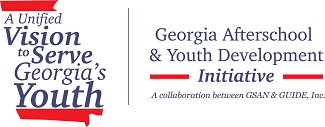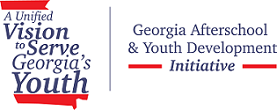References
Klandes
2020-06-15T16:59:45-04:00
References for “Supporting the Behavioral Health Needs of Youth”
- Georgia System of Care, Interagency Directors Team. Little Green Book, A behavioral health glossary. May 2018. Retrieved 3/10/20 from https://gacoeonline.gsu.edu/download/little-green-book-behavioral-health-glossary/
- Child and Adolescent Health Measurement Initiative. 2017-2018 National Survey of Children’s Health (NSCH) data query. Data Resource Center for Child and Adolescent Health supported by Cooperative Agreement U59MC27866 from the U.S. Department of Health and Human Services, Health Resources and Services Administration’s Maternal and Child Health Bureau (HRSA MCHB). Retrieved 03/06/20 from www.childhealthdata.org. CAHMI: www.cahmi.org.
- Voices for Georgia’s Children. 2017. An analysis of Georgia’s child and adolescent behavioral health workforce. https://georgiavoices.org/an-analysis-of-georgias- child-andadolescent-behavioral-health-workforce/
- Centers for Disease Control and Prevention. What Are Childhood Mental Disorders? 2019, March 12. https://www.cdc.gov/childrensmentalhealth/index.html
- America’s Children: Key National Indicators of Well-Being, 2019. https://www.childstats.gov/americaschildren/health3.asp
- Afterschool Alliance. Afterschool: Fostering Protective Factors that Can Last a Lifetime. September 2019.
http://afterschoolalliance.org//documents/issue_briefs/issue_protective_factors_75.pdf
- Berry, T., Teachanarong-Aragon, L., Sloper, M., Bartlett, J., & Steber, K. (2019). Promising Practices for Building Protective and Promotive Factors to Support Positive Youth Development in Afterschool. http://www.cgu.edu/wp-content/uploads/2019/01/Berry_LAsBest_WhitePaper.pdf
- American Institutes for Research. The Science of Learning and Development in Afterschool Systems and Settings. September 2019.
https://www.air.org/sites/default/files/downloads/report/Science-of-learning-and-development-afterschool-settings-2019-rev.pdf
- Centers for Disease Control and Prevention. Adverse Childhood Experiences (ACEs). 2020, April 3.
https://www.cdc.gov/violenceprevention/childabuseandneglect/acestudy/index.html
- National Center on Afterschool and Summer Enrichment. Adverse Childhood Experiences and the School-Age Population: Implications for Child Care Policy and Out-of-School Time Programs. January 2019. https://childcareta.acf.hhs.gov/sites/default/files/public/ncase-aces-implications-child-care-508c_2.pdf

